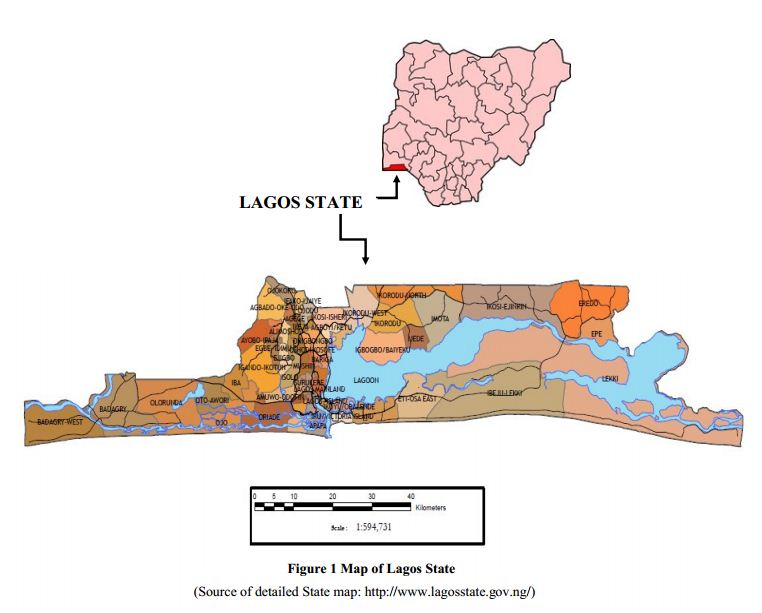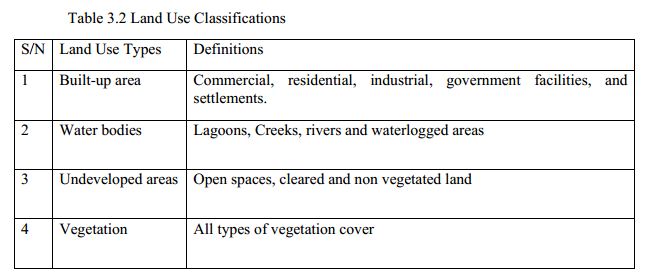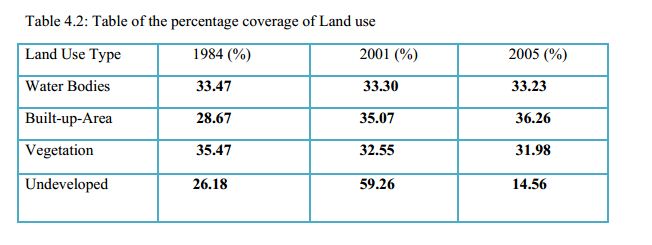Group B - Collaborative Climate Adaption Project: Difference between revisions
Kingajanossy (talk | contribs) |
Kingajanossy (talk | contribs) |
||
| Line 68: | Line 68: | ||
Climate change is now generally recognized as the greatest challenge to sustainable development, especially in a developing country such as Nigeria. Lagos State is particularly vulnerable to the impacts of climate change and unless concerted and urgent action is taken, it could result in widespread ecosystem degradation, thus disrupting socio-economic development and the welfare of the people. (Towards a LAGOS STATE CLIMATE CHANGE ADAPTATION STRATEGY, January 2012) | Climate change is now generally recognized as the greatest challenge to sustainable development, especially in a developing country such as Nigeria. Lagos State is particularly vulnerable to the impacts of climate change and unless concerted and urgent action is taken, it could result in widespread ecosystem degradation, thus disrupting socio-economic development and the welfare of the people. (Towards a LAGOS STATE CLIMATE CHANGE ADAPTATION STRATEGY, January 2012) | ||
In Lagos State, impoverished coastal communities living on reclaimed land are at risk from flooding due to storm surges and heavy rainfall events. Residents in these communities cope with impacts such as property damage, temporary homelessness, and spread of malaria. In this case, future | In Lagos State, impoverished coastal communities living on reclaimed land are at risk from flooding due to storm surges and heavy rainfall events. Residents in these communities cope with impacts such as property damage, temporary homelessness, and spread of malaria. In this case, future | ||
vulnerability will be affected by rising sea levels and increased severity of storms expected in a changing climate, which will significantly affect urban development patterns.(Source: Adelekan, 2009) | vulnerability will be affected by rising sea levels and increased severity of storms expected in a changing climate, which will significantly affect urban development patterns.(Source: Adelekan, 2009) | ||
Revision as of 23:15, 10 December 2012
| Area | Lagos | |
| Place | please enter the town/village name | |
| Country | Nigeria | |
| Topic | please enter the topic here | |
| Author(s) | Kinga Janossy, Melissa Abas and Fadera Williams | |

| ||
|
| ||
Rationale: Why have you selected this case study area?
- Please summarise:- e.g. previous experience, is it your everyday environment?, specific vulnerability, previous research being done etc.
Climate change is now generally recognized as the greatest challenge to sustainable development, especially in a developing country such as Nigeria. Lagos State is particularly vulnerable to the impacts of climate change and unless concerted and urgent action is taken, it could result in widespread ecosystem degradation, thus disrupting socio-economic development and the welfare of the people. (Towards a LAGOS STATE CLIMATE CHANGE ADAPTATION STRATEGY, January 2012)
In Lagos State, impoverished coastal communities living on reclaimed land are at risk from flooding due to storm surges and heavy rainfall events. Residents in these communities cope with impacts such as property damage, temporary homelessness, and spread of malaria. In this case, future vulnerability will be affected by rising sea levels and increased severity of storms expected in a changing climate, which will significantly affect urban development patterns.(Source: Adelekan, 2009)
Authors' perspectives
- What theoretical or professional perspective do you bring to the case study?
Landscape and/or urban context
- Biogeography, land use patterns, cultural features, overall character, history and dynamics
- ratio of green/blue and sealed/built-up areas
Illustration:
(tables from Land Use Change Analyses in Lagos State From 1984 to 2005 / Oludayo Emmanuel ABIODUN, James Bolarinwa OLALEYE, Andrew Nnamdi DOKAI and Adedayo Kazeem ODUNAIYA, Nigeria)
Map; sketches; short descriptive analyses
Cultural/social/political context
- Brief explanation of culture, political economy, legal framework
Illustration:
Bullet points, image, background notes
Local Climate
- What are the climatic conditions at present? Have there been extreme weather events in the near past?
- Which changes are expected? Is there any evidence?
Illustration: Table or time line
Analysis of vulnerability
- If you consider these potential changes - which aspects/functions of your case study would be affected?
Illustration: Map/diagram/sketches/photos/background notes
Proposals for Climate Change Adaption
- How could your case study area become more resilient to climate change?
- Which measures would need to be taken to adapt to the new situation?
- How could you assure sustainability of these measures?
- Please describe 2-3 measures
Proposals for Climate Change Mitigation
- Which measures would need to be taken to reduce greenhouse gas emissions and other drivers of climate change within your case study area?
- How could you assure sustainability of these measures?
- Please describe 2-3 measures
Your scenario
- How will this area look like in 2060?
- Please forecast one potential future development taking climate change into account
Illustration: Map/diagram/sketches photos and background notes
What can be generalized from this case study?
- Are there any important theoretical insights?
- Which research questions does it generate?
- Short statement plus background notes
Image Gallery
- Yourimage.jpg
your image text
- Yourimage.jpg
your image text
- Yourimage.jpg
your image text
- Yourimage.jpg
your image text
- Yourimage.jpg
your image text
- Yourimage.jpg
your image text
- Yourimage.jpg
your image text
- Yourimage.jpg
your image text
References
Please add literature, documentations and weblinks
About categories: You can add more categories with this tag: "", add your categories


